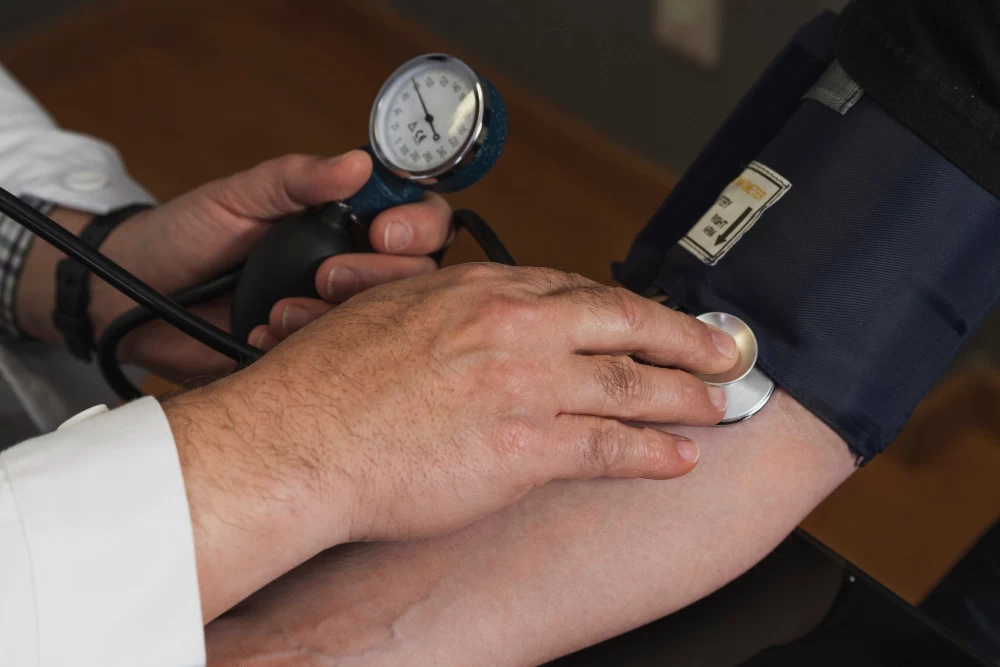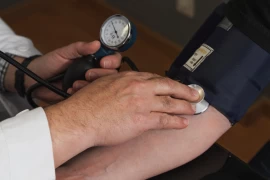
Essential Hypertension
- Essential Hypertension
- What is Essential Hypertension?
- What is the Difference Between Essential Hypertension and Other Hypertension Types?
- What Are the Risks of Essential Hypertension?
- What is the Treatment Protocol of Essential Hypertension?
What is Essential Hypertension?
Essential hypertension, also known as primary hypertension, is a common medical condition characterized by high blood pressure in the arteries that persists over time without any identifiable underlying cause. It is the most common type of hypertension, accounting for approximately 90-95% of all cases of high blood pressure.
The exact cause of essential hypertension is not completely understood, but it is believed to be a complex interplay of both genetic and environmental factors. Some of the risk factors for essential hypertension include advancing age, family history of hypertension, obesity, physical inactivity, smoking, high salt intake, and certain chronic medical conditions such as diabetes and kidney disease.
Essential hypertension can lead to serious health complications, such as heart disease, stroke, and kidney failure if left untreated. Treatment typically involves lifestyle modifications such as a healthy diet, regular exercise, weight loss, and smoking cessation, as well as medications to lower blood pressure if necessary.
Regular monitoring of blood pressure is important for individuals with essential hypertension to ensure that their blood pressure stays within a healthy range and to identify any changes that may require adjustment to their treatment plan.
What is the Difference Between Essential Hypertension and Other Hypertension Types?
Essential hypertension, also known as primary hypertension, is a type of hypertension that has no identifiable underlying cause. It is the most common type of hypertension and accounts for 90-95% of all hypertension cases. On the other hand, secondary hypertension is a type of hypertension that is caused by an underlying medical condition or medication.
Some examples of medical conditions that can cause secondary hypertension include kidney disease, sleep apnea, hormonal imbalances, and certain heart defects. Medications that can cause secondary hypertension include some types of birth control pills, decongestants, and steroids.
While the symptoms and complications of essential and secondary hypertension are generally similar, the treatment approach for these two types of hypertension can be different. In secondary hypertension, treating the underlying cause may be the primary approach to lowering blood pressure. For example, treating kidney disease or changing medications that can cause hypertension may lead to improvement in blood pressure levels. However, in essential hypertension, lifestyle modifications such as a healthy diet, regular exercise, and medications to lower blood pressure are the mainstay of treatment.
Overall, the important difference between essential hypertension and secondary hypertension is that essential hypertension has no known cause, while secondary hypertension is caused by an underlying condition or medication.
What Are the Risks of Essential Hypertension?
Essential hypertension, also known as primary hypertension, can lead to various serious health complications if left untreated. When blood pressure remains consistently elevated, it can damage blood vessels, leading to several health problems. Some of the risks associated with essential hypertension include:
- Cardiovascular disease: High blood pressure can cause damage to the blood vessels, which increases the risk of cardiovascular disease, such as coronary artery disease, heart attack, and stroke.
- Kidney disease: Uncontrolled hypertension can damage the small blood vessels in the kidneys, leading to chronic kidney disease.
- Eye damage: High blood pressure can cause damage to the small blood vessels in the retina of the eye, which can lead to vision loss or blindness.
- Aneurysm: Persistent high blood pressure can cause the walls of the blood vessels to weaken and bulge, increasing the risk of an aneurysm.
- Cognitive impairment: High blood pressure can damage the blood vessels in the brain, leading to cognitive impairment and an increased risk of dementia.
- Sexual dysfunction: Essential hypertension can cause erectile dysfunction in men and a decreased libido in both men and women.
The risk of these complications can be reduced by early detection and management of high blood pressure through lifestyle modifications, such as a healthy diet, regular exercise, and medication when necessary. Regular monitoring of blood pressure is essential for individuals with essential hypertension to ensure that their blood pressure stays within a healthy range and to identify any changes that may require adjustment to their treatment plan.
What is the Treatment Protocol of Essential Hypertension?
Essential hypertension, which is hypertension without an underlying cause, is managed through lifestyle changes and medication. The treatment protocol may vary depending on individual circumstances, lifestyle, and current health status.
The first-line approach to treatment includes lifestyle changes, such as:
- Adopting a healthy diet: This includes a diet that is low in sodium, high in potassium, and includes fruits, vegetables, whole grains, and low-fat dairy products.
- Physical activity: Engaging in at least 30 minutes of moderate to high-intensity exercise per day, such as walking, cycling, swimming, or running.
- Not smoking: Quitting or reducing smoking.
- Limiting alcohol consumption: Limiting alcohol intake to no more than two standard drinks per day for men and one for women.
In addition to lifestyle changes, your doctor may recommend medication to regulate your blood pressure. Medications have different mechanisms to help lower blood pressure, and the type of medication prescribed may vary depending on your doctor's recommendation. Medication is usually used in conjunction with lifestyle changes.
Essential hypertension treatment is a lifelong commitment, and it's important to have your blood pressure regularly measured and to attend appointments with your doctor as recommended. If any changes need to be made to your treatment plan, talk to your doctor.


